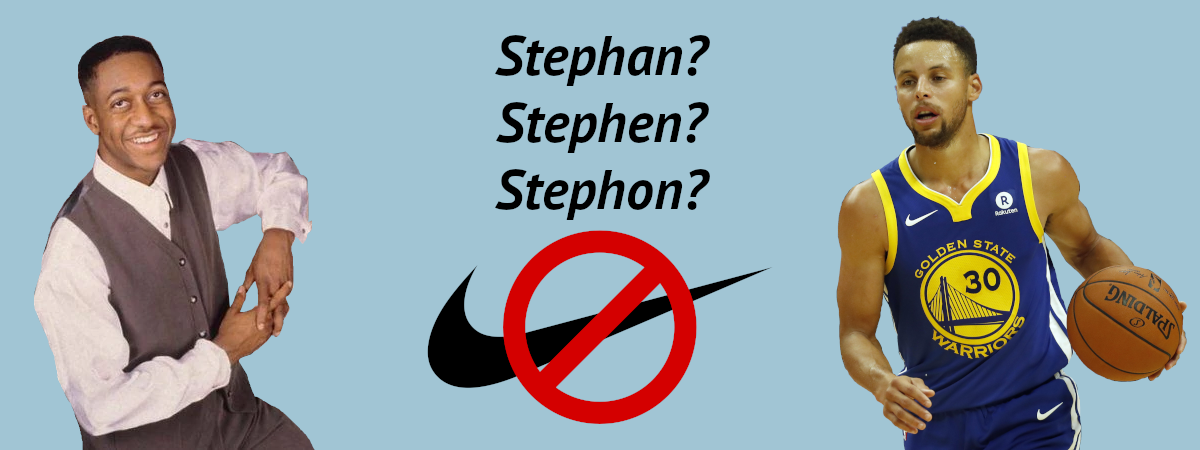My name is Ávaro (pronounced AL-bah-roh), and for a really long time, people have called me Alvero, Alberto, Arturo, Alvarado, Salvador, and even Alejandro!
My last name is Montoro, which is commonly mistaken for Montero, Montes, Monteiro, or Montoya, which has led to recurring jokes with friends and family.

I am happy and proud of my name, even if many people seem to have problems pronouncing it. Honestly, I'm fine as long as they try. And I am not the only one who appreciates the effort.
Failing at even trying can be a costly mistake. Check what happened to Nike and how they lost the sponsorship for Stephen Curry, one of the best sportspeople at the moment:
During a meeting between the sports brand and Curry's representatives, one of Nike's officials pronounced Stephen's name as Stephon (like the character from Family Matters). And no comment or correction was made... which ultimately meant the end of a really profitable deal. Later, Curry went to sign a huge contract with Under Armour.

You may be asking yourself now, What does this have to do with a career in software development? I am not Stephen Curry! I won't be dealing with a problem like this!
Note. If you happen to be Stephen Curry... Hi! Big fan here! What are you doing reading web dev posts? Anyways, join the Spurs. We could use a player of your talent on the team.
You actually may find yourself with a problem like this. Maybe not in a situation involving millions of dollars, but with a job on the line.
We would not call an interviewer Luisa if her name is Keesha. Or Brandon if his name is London. We would be careful to pronounce and write their name correctly during the interview or in a thank-you note.
So, if when we refer to a person, we use the spelling and capitalization that they use, why don't we do the same with the names of technologies and programming languages in our résumés?

Our résumés will most likely be the first thing a recruiter and interviewer see and learn from us. Avoiding typos and grammatical mistakes is essential... and that includes names of technologies.
Writing the names incorrectly may not be a big issue, though. Résumés are normally vetted by people who want to check experience points. Once we are at the technical interview, what really matters is technical knowledge and skills (among other things).
To first get to the technical interview, we want our résumé not to end in the recycling bin of a picky recruiter or HR person. Extra negative points if the company's stack is based on the language/technology we wrote incorrectly.
So avoid a Nike moment: write jQuery instead of jquery or JQuery; JavaScript instead of javascript or JAVAScript; PHP instead of Php or php; and please, never use Java and JavaScript as interchangeable terms!

It may sound petty and small, but it may be the difference between leaving a good or a bad impression. And between getting a job interview or being turned down even before a phone screening.
We check our résumés for typos. Let's check them for the correct spelling of technologies and programming languages.

